As an incoming first-year student, Giansy Paul never imagined she would be asking Political Science majors at Stetson about the changes they’d like to see in their curriculum.
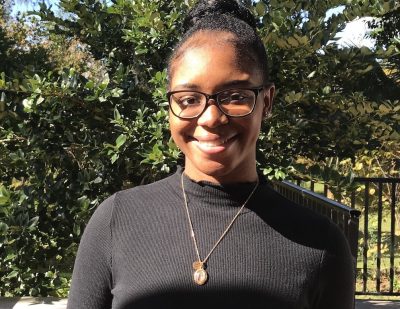
Paul signed up for a First Year Seminar (FSEM) last fall called “The Voice of the People,” examining the role of citizens in a democracy and whether they are informed enough to participate effectively in political decision-making.
Along the way, she became part of an innovative project to gather opinions from political science majors at Stetson about potential changes in their department’s curriculum. These suggestions are now under review and could lead to revisions to better educate the students for the 21st century.
“I think what my class did was something that I don’t think most colleges do, which sets us apart from other colleges,” said Paul, a student from Miami who plans to double major in Political Science and Public Management.
“By participating in the Deliberative Poll and watching the political science majors discuss their curriculum was another reason why I was like, ‘Yes, this is where I’m supposed to be,’” she said about attending Stetson.
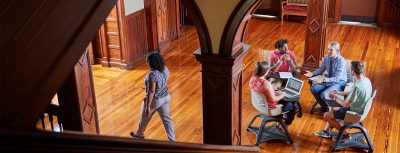
The project was the idea of her FSEM professor, David Hill, Ph.D., chair of the Political Science Department. Hill wanted to use a cutting-edge method of gathering opinions to hear from political science majors about possible revisions in their curriculum.
The FSEM students used Deliberative Polling, a concept developed by Stanford University Professor James Fishkin who noted that citizens often are uninformed about issues when they answer public opinion polls. Because of that, polls can reflect people’s quick impressions based on TV sound bites and news headlines.
Deliberative Polling, on the other hand, takes the time to educate people on issues, bringing them together to discuss the issues and then asking for their opinions.
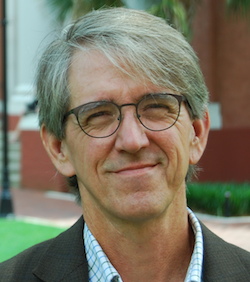
And this is what Professor Hill’s FSEM class did last semester. A random sample of 38 political science majors gathered in small groups on Nov. 19 to hash out the proposals, such as whether to begin requiring a Political Philosophy class, as many other colleges do. The FSEM students served as moderators, keeping the discussions on track.
“We were very pleased to sit and observe, as faculty members, a group of 18- to 22-year-olds have a very serious conversation about curriculum,” Hill said, adding that Political Science Professor Eugene Huskey, Ph.D., and Assistant Professor Steven Smallpage, Ph.D., also attended the event.
“We weren’t talking about politics or social problems. We were talking about curriculum within the Department of Political Science, and to watch a group of college students do that so seriously and enthusiastically was really great,” he said.
The students generally supported the proposals, which also included developing tracks, or areas of concentration, within the major. And especially gratifying, Hill added, was watching the students gravitate “toward the more academic rigorous options.”
“We’re still sorting through the responses, but we’re going to very seriously consider what the students told us that night,” Hill said. “What makes this really unique to me is using the FSEM students to do the Deliberative Poll.”
He hopes to use Deliberative Polling again within the department and said the process showed how First Year Seminars can be used in “innovative ways that can contribute to the university’s mission.”
“Certainly, the end product here was improving the Department of Political Science and making our curriculum more appropriate for the 21st century, which is what we’re trying to do to provide the best education for our students,” he said.
Ranjini Thaver, Ph.D., professor of Economics and Director of the First Year Seminar Experience, praised the project for allowing students to take such an active and important role within the Political Science Department.
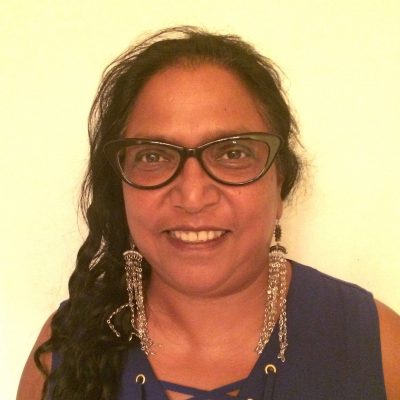
“What is fascinating about this project, in particular, is that the FSEM students, in their very first semester at Stetson, were allowed agency and leadership in developing a rigorous, engaging and timely curriculum,” she said.
“This project also demonstrates how a rich, content-driven and unique FSEM experience may acclimate students to the demands of higher education, while at the same time, instilling within them the importance of effective writing, speaking, critical thinking and information literacy,” she added. “Our education is best when students are so passionately engaged in their studies, that they welcome learning new ways of thinking and being!”
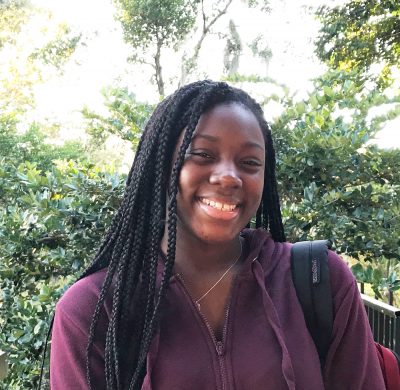
FSEM student Ajah Conage said she initially thought it was “a little weird” to ask students about their curriculum. But the experience changed her mind.
“The students are ultimately the ones taking the classes. They are the ones who have to make these decisions,” she said. “It was a good idea that I think maybe other universities could try.”
Published originally at Stetson Today February 1, 2019
